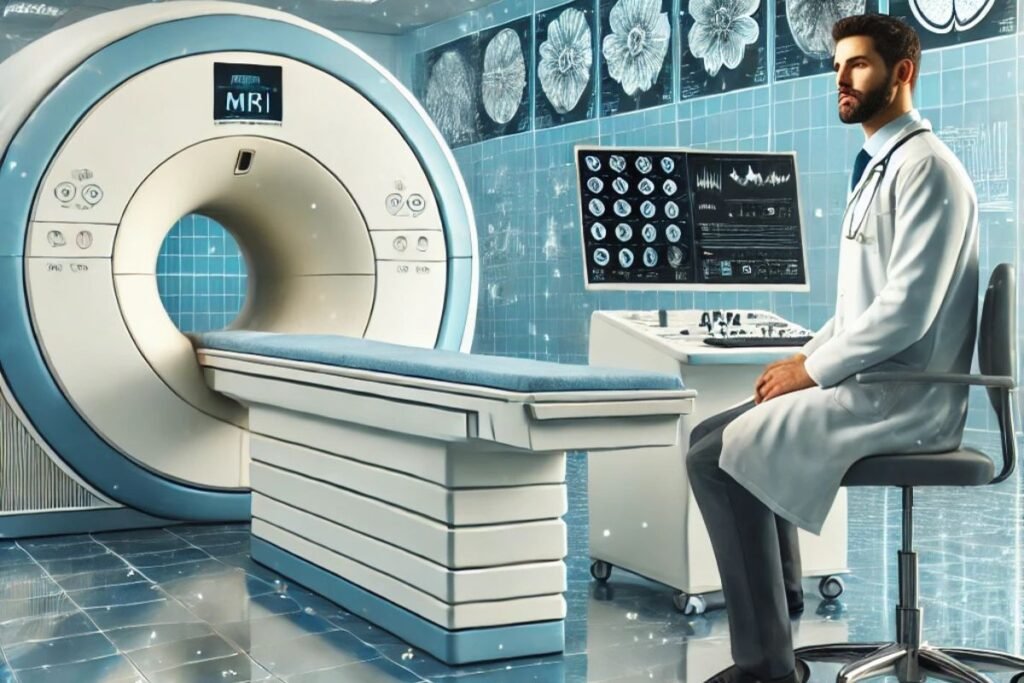MRI Tech, The field of healthcare is vast, offering numerous career opportunities for those passionate about making a difference in people’s lives. Among these, becoming an MRI Tech (Magnetic Resonance Imaging Technologist) stands out as a rewarding and fulfilling choice. With advancements in medical imaging technology and a growing demand for skilled professionals, MRI Techs are crucial in diagnosing and treating various medical conditions. Let’s explore what it takes to become an MR Tech and why this career path is worth considering.
Table of Contents
What Does an MRI Tech Do?
MRI Techs are healthcare professionals who specialize in operating Magnetic Resonance Imaging machines. These advanced imaging systems use magnetic fields and radio waves to produce detailed images of the body’s internal structures. These images help doctors diagnose and monitor medical conditions, ranging from brain disorders to joint injuries.
An MRI Tech’s responsibilities include:
- Preparing patients for MRI scans by explaining the procedure and addressing concerns.
- Positioning patients and ensuring their comfort during the scan.
- Operating MRI equipment to capture high-quality images.
- Collaborating with radiologists and physicians to interpret the results.
- Maintaining and troubleshooting MRI machines to ensure optimal performance.
Educational Requirements and Training
To pursue a career as an MRI Tech, you typically need to follow these steps:
- Earn a Relevant Degree: Most aspiring MRI Techs complete an associate degree in radiologic technology or a related field. Some may pursue a bachelor’s degree for advanced opportunities.
- Obtain Certification: After completing your education, obtaining certification is crucial. The American Registry of Radiologic Technologists (ARRT) offers certification and registration for MR Techs, which is often required by employers.
- Gain Clinical Experience: Hands-on training through internships or clinical rotations is an essential part of becoming an MR Tech. This experience helps you develop practical skills and confidence in operating MRI equipment.
- Continuing Education: Staying updated with the latest advancements in MRI technology is vital. Many MRI Techs take additional courses or attend workshops to enhance their skills.
Skills Needed for Success
An MRI Tech’s job requires a combination of technical expertise and interpersonal skills. Some key skills include:
- Technical Proficiency: In-depth knowledge of MRI equipment and imaging techniques.
- Attention to Detail: Ensuring precise positioning and capturing accurate images.
- Communication Skills: Effectively explaining procedures to patients and working collaboratively with healthcare teams.
- Empathy and Patience: Providing comfort and reassurance to patients, many of whom may feel anxious about the procedure.
Career Outlook and Benefits
The demand for MRI Techs is on the rise, driven by the aging population and the increasing need for advanced diagnostic tools. According to the U.S. Bureau of Labor Statistics, employment for MR Techs is expected to grow by 9% from 2021 to 2031, faster than the average for all occupations.
Some benefits of pursuing a career as an MRI Tech include:
- Competitive Salary: MR Techs earn a median annual salary of around $77,000, with opportunities for higher earnings based on experience and location.
- Job Stability: Healthcare professionals are always in demand, providing long-term job security.
- Diverse Work Environments: MR Techs can work in hospitals, diagnostic imaging centers, outpatient clinics, and research facilities.
- Personal Fulfillment: Helping patients and contributing to life-saving diagnoses make this career deeply rewarding.
How to Get Started
If you’re ready to embark on a career as an MRI Tech, start by researching accredited radiologic technology programs. Many schools offer flexible learning options, including online courses, making it easier to balance education with other commitments. Additionally, seek mentorship or guidance from professionals in the field to gain valuable insights.
FAQs
Q1: What is the primary role of an MR Tech? A: MR Techs operate MRI machines to produce detailed images of the body, aiding in the diagnosis and treatment of medical conditions.
Q2: How long does it take to become an MRI Tech? A: It typically takes 2-4 years, depending on whether you pursue an associate or bachelor’s degree.
Q3: Is certification mandatory for MR Techs? A: Yes, most employers require MR Techs to be certified by organizations like the ARRT.
Q4: What qualities make a successful MRI Tech? A: Technical expertise, attention to detail, empathy, and strong communication skills are essential.
Becoming an MRI Tech is more than just a career choice; it’s a path to making a meaningful impact in healthcare. Start your journey today and unlock a world of opportunities!


